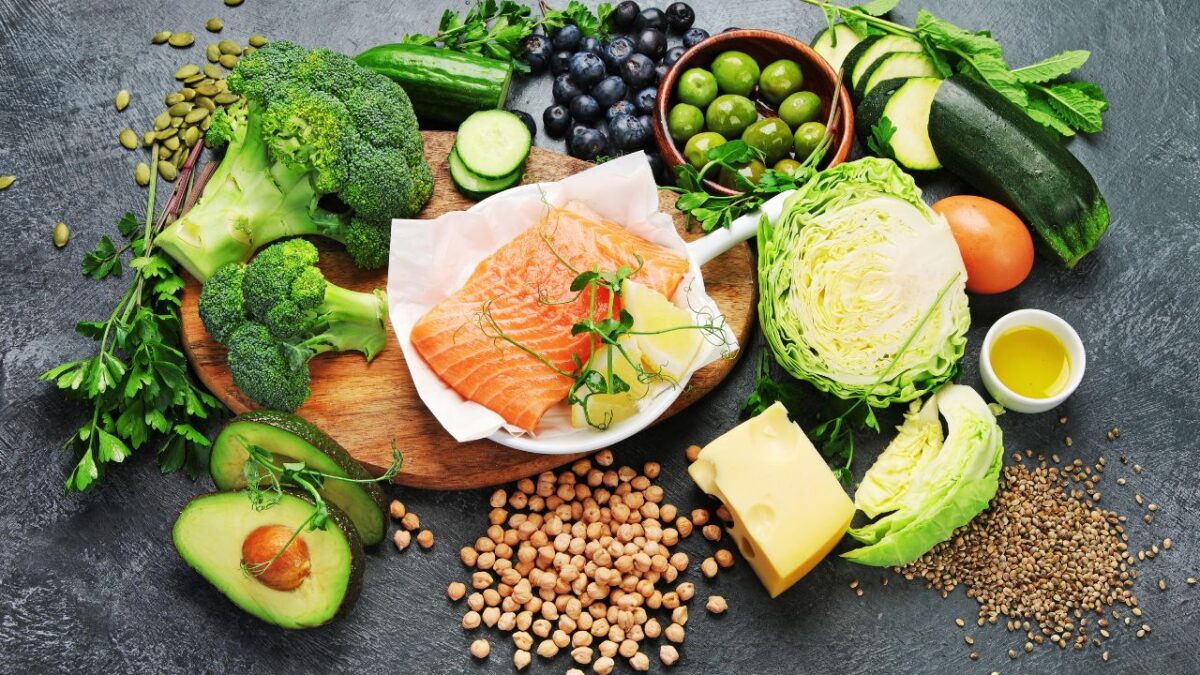Could This Be the #1 Menopause Diet to Beat Fatigue and Boost Energy?

If dragging yourself out of bed feels like an Olympic sport lately, welcome to the menopause fatigue club. Between fluctuating hormones, disrupted sleep, and mystery mood swings, it’s no wonder many women hit a wall—sometimes by 10 a.m.
But here’s the good news: what (and how) you eat can flip the switch from sluggish to energized. The right menopause diet can balance hormones, stabilize blood sugar, and power up your mitochondria (aka your cells’ energy factories). And we’re about to break it all down—without the gimmicks, just the good stuff.
So What’s the #1 Menopause Diet to Boost Energy?
Enter: The Mediterranean Diet—with a Menopause Twist.
Following a Mediterranean-style diet isn’t just good for your heart—it could be a game-changer for menopausal health. A recent systematic review1 sheds light on the promising benefits of the Mediterranean Diet (MD) for menopausal women. It suggests that following a Mediterranean-style diet isn’t just good for your heart—it could be a game-changer for menopausal health.
We’re talking real, measurable improvements: reduced body weight, lower blood pressure, better omega-6 to omega-3 ratios (which helps calm inflammation), and healthier cholesterol and triglyceride levels—including a drop in LDL, the so-called “bad” cholesterol.
These findings aren’t just impressive—they’re empowering. They suggest that something as accessible as dietary change can play a key role in public health strategies to support women through midlife transitions. In other words, what you eat can directly impact how you feel, how you age, and how much energy you have for the life you want to live.
Let’s call it Mediterranean+.
This time-tested, heart-loving way of eating is the MVP for midlife energy. Think of it as clean fuel for a changing body. It’s heavy on colorful veggies, lean proteins, healthy fats, and complex carbs. But for menopause? We tweak it just a bit.
Here’s what that looks like:
1. Power Up with Phytoestrogens
Hormones are rollercoastering, but phytoestrogens (plant compounds that mimic estrogen) can help smooth the ride.
Best sources:
- Flaxseeds
- Soybeans (edamame, tofu, tempeh)
- Chickpeas
- Lentils
Why it works: Studies show that phytoestrogens may help reduce hot flashes and support hormone balance, which can ease fatigue.
2. Say Yes to Slow Carbs
Skip the sugar crashes. Instead, focus on slow-burning complex carbs that give your brain and body sustained energy.
Go for:
- Quinoa
- Sweet potatoes
- Steel-cut oats
- Brown rice
Why it works: These carbs stabilize blood sugar, a major factor in mood and energy regulation during menopause.
3. Fat Is Your Friend (The Good Kind)
Your brain is about 60% fat—and it needs the right kinds to function. Omega-3 fatty acids can also help combat inflammation and brain fog.
Eat more of:
- Avocados
- Olive oil
- Salmon, sardines, mackerel
- Walnuts and chia seeds
Why it works: Omega-3s are linked to better sleep, lower depression risk, and improved cognitive function in midlife women.
4. Protein at Every Meal
You start losing muscle mass in your 40s. Less muscle = less energy. Protein helps build and maintain muscle, and it keeps you full longer (no 3 p.m. cookie cravings).
Top choices:
- Eggs
- Chicken breast
- Greek yogurt
- Lentils and beans
- Tofu or tempeh
Why it works: Protein supports metabolism and muscle repair—both critical to staying strong and energized.
5. Balance Your Minerals
Low iron? Low energy. Low magnesium? Cue the muscle cramps and insomnia. Midlife women often need more minerals than they realize.
Don’t skip:
- Leafy greens (spinach, kale)
- Pumpkin seeds
- Dark chocolate (yes, please!)
- Fortified cereals or a high-quality supplement
Why it works: Magnesium supports sleep and nerve function. Iron helps red blood cells carry oxygen (aka energy) throughout your body.
Bonus Tip: Watch the Caffeine & Alcohol
We love a good coffee and the occasional glass of red wine. But too much can spike cortisol and mess with your already-fragile sleep cycle. Try tapering caffeine after 2 p.m. and consider alcohol-free nights during the week to see if your sleep (and energy) improves.
Your Menopause Energy Reset Plan
- Follow the Mediterranean+ diet
- Prioritize sleep
- Move your body daily (even a brisk walk counts!)
- Hydrate like it’s your job
- Manage stress with breathwork or journaling
Bottom Line
You don’t have to accept fatigue as your new normal. A few tweaks to your diet—specifically the Mediterranean+ way—can fuel your body, calm your hormones, and give you that long-lost spark back.
Because energy isn’t just about getting through the day—it’s about enjoying it.
Disclaimer: The information provided in this article is for educational and informational purposes only and is not intended as a substitute for professional medical advice, diagnosis, or treatment. Always consult your healthcare provider or a registered dietitian before making changes to your diet, especially during menopause or if you have any underlying health conditions. Individual needs may vary, and what works for one person may not work for another.
References:
- Gonçalves, C., Moreira, H., & Santos, R. (2024). Systematic review of mediterranean diet interventions in menopausal women. AIMS public health, 11(1), 110–129. https://doi.org/10.3934/publichealth.2024005 ↩︎
